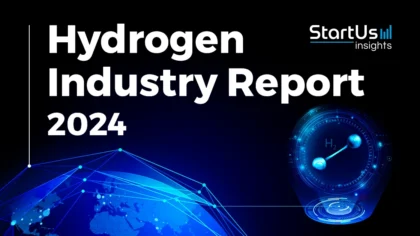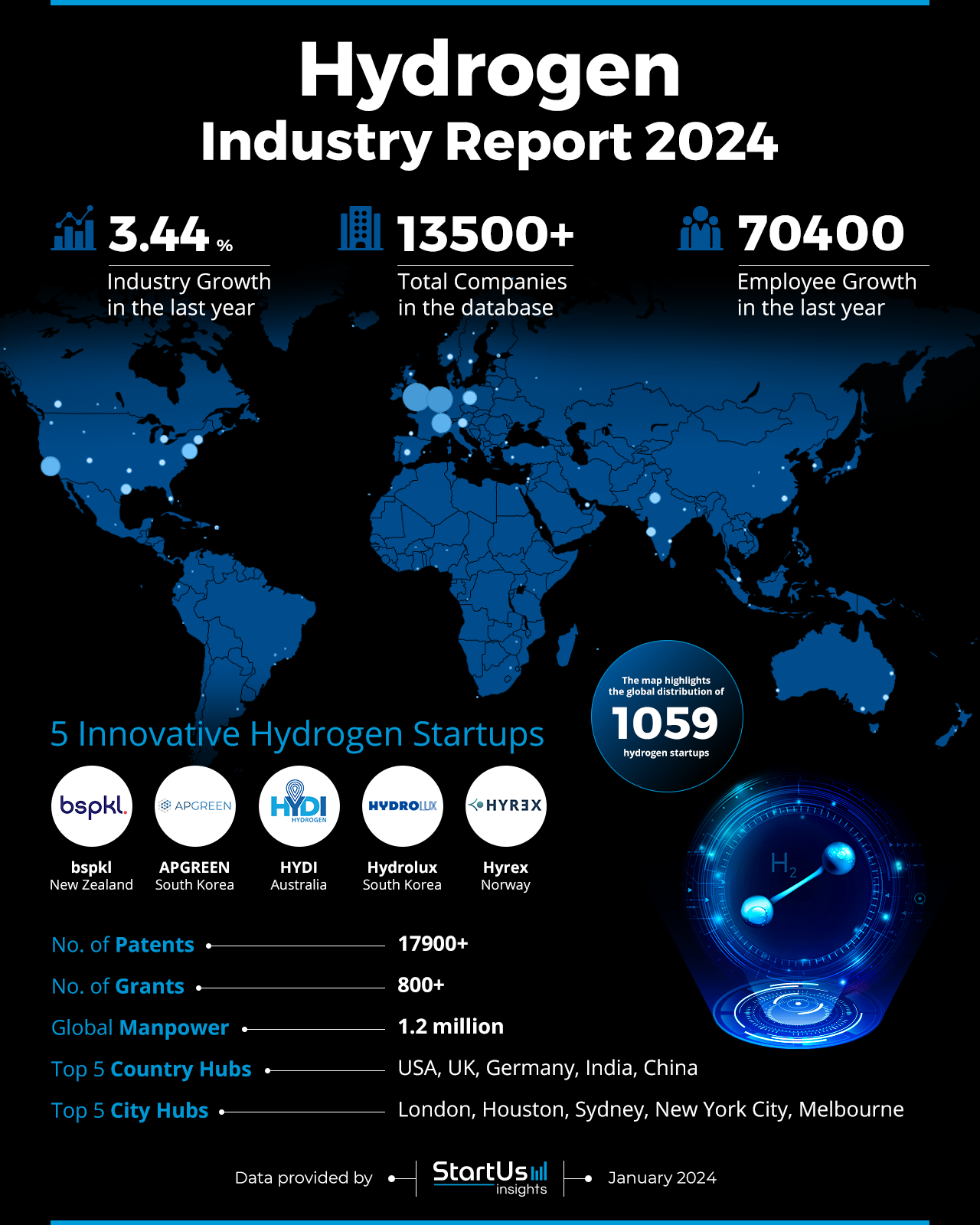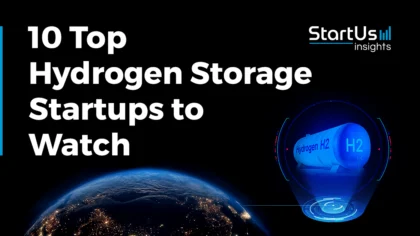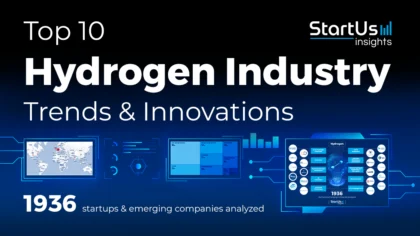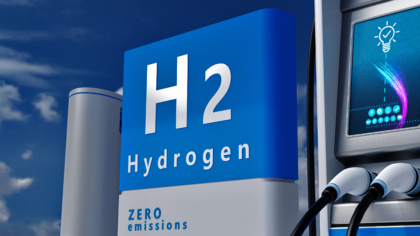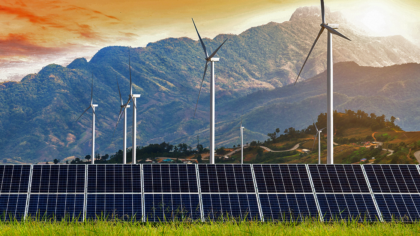The hydrogen report for 2024 highlights the push to implement the clean energy transition, with hydrogen at its epicenter. As countries and industries align with the Paris Agreement goals, hydrogen has emerged as a key player, offering a versatile and sustainable energy solution. This report delves into the advancements in hydrogen production, storage, and utilization. It also showcases innovative technologies and the increasing integration of hydrogen into sectors from transportation to grid management.
This report was last updated in July 2024.
This hydrogen industry report serves as a reference for stakeholders within the industry, investors, policymakers, and economic analysts, providing a snapshot of the industry’s health to map its trajectory for innovation and growth in the coming years.
StartUs Insights Hydrogen Report 2024
- Executive Summary
- Introduction to the Hydrogen Report 2024
- What data is used in this Hydrogen Report?
- Snapshot of the Global Hydrogen Industry
- Funding Landscape in the Hydrogen Industry
- Who is Investing in the Hydrogen Economy?
- 5 Hydrogen Startups impacting the Industry
Executive Summary: Hydrogen Industry Report 2024
This report is created using data obtained from the Big Data and AI-powered StartUs Insights Discovery Platform, covering more than 3.7 million global companies, as well as 20K+ technologies and emerging trends. We also analyzed a sample of 1000+ hydrogen startups developing innovative solutions to present five examples of emerging hydrogen economy trends.
- Sector Growth: The hydrogen industry has experienced a growth of 3.44%, with over 13 500 companies active, indicating the sector’s expanding presence in clean energy.
- Employment Surge: An increase of 704 000 jobs in the last year highlights the industry’s role in job creation and the growing demand for hydrogen technology expertise.
- Global Hubs: The USA, UK, Germany, India, and China are the leading hubs in hydrogen innovation. It reflects the global shift towards hydrogen as a sustainable energy solution.
- Investment Landscape: Over 4 300 funding rounds closed shows a dynamic investment environment and strong financial interest in hydrogen technologies.
- Innovation and Patents: More than 17 900 patents filed emphasizes the industry’s commitment to research, development, and securing intellectual property.
- Emerging Trends: Growing integration of hydrogen in sectors like transportation and grid management. Top trends include advancements in electrolyzers, hydrogen conversion and processing, and new materials.
- Startup Contributions: Featuring innovative startups including bspkl (catalyst coated membrane tech), APGREEN (green hydrogen conversion), HYDI (hydrogen on demand systems), Hydrolux (alloys for hydrogen storage), and Hyrex (hydrogen electric propulsion systems).
- Financial Backing: Significant financial commitments from top investors exceed over USD 6.4 billion. Top investors include EnCap Flatrock Midstream, Oaktree Capital, and Natixis.
- Future Directions: The hydrogen industry is poised for continued growth and innovation, driven by global sustainability initiatives and breakthrough technological advancements.
- Recommendations for Stakeholders: Continued investment in R&D, exploration of innovative and integrated hydrogen solutions, and alignment with global environmental goals to drive industry growth.
Explore the Data-driven Hydrogen Report for 2024
The Hydrogen Report 2024 uses data from the Discovery Platform and encapsulates the key metrics that underline the sector’s dynamic growth and innovation. The industry has seen a significant uptick in growth with a 3.44% increase in the last year. This growth is mirrored in the growing number of companies in the sector, with our database covering 13 500+ entities.
Employee growth has been equally impressive, with the industry adding 704 000 jobs in the last year. This surge in employment reflects the escalating demand for hydrogen technology and expertise as it emerges as a viable clean energy source.
The report identifies the top five country hubs for the hydrogen economy as the USA, UK, Germany, India, and China. These hubs are integral to the industry’s development, serving as centers of excellence for hydrogen innovation. Further highlighting the sector’s innovative drive are 5 standout hydrogen startups from across the globe. These are bspkl from New Zealand, APGREEN from South Korea, HYDI from Australia, Hydrolux from South Korea, and Hydron from the USA. These companies are at the forefront of hydrogen technology, working on hydrogen production, storage, distribution, and processing, among other applications.
What data is used to create this hydrogen report?
Based on the data provided by our Discovery Platform, we observe that the hydrogen industry ranks among the top 5% in the following categories relative to all 20K topics in our database. These categories provide a comprehensive overview of the industry’s key metrics and inform the short-term future direction of the industry.
- News Coverage & Publications: It has been the subject of significant media attention, with more than 2 900 publications in the last year, highlighting its relevance and growing prominence in the energy discourse.
- Funding Rounds: Our records show over 4 300 funding rounds, which underscores the dynamic investment environment and the high level of financial interest in the hydrogen sector.
- Manpower: The industry supports a substantial workforce of more than 1.2 million workers and has demonstrated notable growth by adding over 70 000 new employees in the past year, reflecting its expanding influence in the job market.
- Patents: With more than 17 900 patents filed, the hydrogen economy is a hub of innovation and technological advancements, securing its intellectual property at a remarkable rate.
- Grants: The sector has received over 800 grants, providing critical support for research and development, which is essential for pioneering new hydrogen technologies and applications.
A Snapshot of the Global Hydrogen Industry
The hydrogen industry is emerging as a pivotal component of the global shift towards sustainable energy. Currently, the industry employs a workforce of 1.2 million, a clear indicator of its growing influence in the energy sector. Over the past year, the industry has expanded its workforce by over 70 000 employees. This reflects a strong and growing demand for skilled professionals in this field.
The industry’s commitment to innovation is further underscored by the filing of over 17 900 patents, indicating a vibrant culture of research and technological advancement. Support for these endeavors is also strong, with over 800 grants awarded to foster further innovation.
Explore the Funding Landscape of the Hydrogen Industry
Financial engagement in hydrogen is robust, with an average investment value standing at USD 30 million. This significant figure highlights investor confidence in the industry’s potential for growth and profitability. Additionally, the industry has attracted more than 1700 investors, ranging from venture capitalists to large-scale institutional financiers, all looking to capitalize on the future of clean energy.
The sector has also seen a flurry of financial activity, with more than 4300 funding rounds closed. This level of investment activity is not just a testament to the current health of the hydrogen market but also its potential for future expansion and its role in the energy transition.
Who is Investing in the Hydrogen Economy?
The hydrogen industry is buoyed by significant investments from leading financial institutions. Top investors contribute more than USD 6.4 billion, highlighting the sector’s strategic importance and the confidence that investors place in its prospects.
- Warburg Pincus: Stands at the forefront with an investment of USD 1.2 billion across 5 companies, showcasing a strong commitment to driving innovation in the hydrogen space.
- EnCap Flatrock Midstream: Has invested USD 1.1 billion in 2 companies, signifying a targeted investment strategy in the infrastructure supporting hydrogen development.
- Oaktree Capital Management: Has allocated USD 890 million to 5 companies, reflecting their confidence in the hydrogen industry’s long-term value.
- Natixis: With USD 683 million invested in 2 companies, Natixis demonstrates strategic positioning in the financing of hydrogen initiatives.
- UniSuper: Has made a significant single investment of USD 676 million in 1 company, indicating a substantial bet on the success of hydrogen technology.
- Dover: Has spread its investment of USD 631 million across 3 companies, suggesting a belief in the diversified potential within the hydrogen sector.
- Hy24: With USD 628 million invested in 2 companies, Hy24 is actively fostering the growth of hydrogen as a key player in the clean energy transition.
- GIC: Has invested USD 627 million in 6 companies, underlining its diversified investment approach and optimism in the hydrogen market’s expansion.
These investors are instrumental in propelling the hydrogen industry forward. They provide the capital necessary for technological advancements as well as the financial endorsement that underpins the sector’s future viability.
5 Top Examples from 1000+ Innovative Hydrogen Startups
The five innovative startups showcased below are picked based on data including the trend they operate within and their relevance, founding year, funding status, and more. Book a demo to find promising startups, emerging trends, or industry data specific to your company’s needs and objectives.
bspkl offers Catalyst Coated Membrane Technology for Electrolyzers
New Zealand-based startup bspkl develops catalyst coated membrane (CCM) technology for use in proton exchange membrane (PEM) electrolysis. Their CCM uses an extremely low loading of iridium which requires significantly less catalyst material than comparable solutions. This flexible CCM layer does not require a supporting structure and has shown no delamination from the membrane.
Bspkl produces CCMs for a range of applications using different catalyst materials and membrane types in a scalable manufacturing process. Notably, its technology aims for current densities above 2 A/cm2 along with degradation rates below 3μV/h.
APGREEN simplifies Green Hydrogen Conversion Processes
South Korean startup APGREEN builds green hydrogen conversion technology to reduce transportation costs for hydrogen charging in South Korea. Its technology allows hydrogen production from a variety of hydrocarbon feeds like landfill gas, biomethane, and gases from plastic decomposition, making it suitable for green hydrogen.
Additionally, the onsite technology is multi-use as it requires low input energy for reforming and conversion processes. This allows intermittent operation with a low device footprint and low maintenance costs. Moreover, APGREEN’s solution also serves as a carbon conversion and utilization system.
HYDI complements Diesel Engines with Hydrogen
Australian startup HYDI offers a hydrogen-on-demand system that supplies hydrogen gas to a diesel engine’s intake. This improves combustion efficiency and reduces fuel consumption, carbon emissions, and greenhouse gases while increasing performance. The HYDI Unit is safe as it does not store hydrogen but rather produces it only when the engine is running.
It is designed with durable stainless steel construction to perform well in harsh environments. The HYDI Unit is also economical as it offers a rapid return on investment through fuel cost savings. Finally, the HYDI Units do not contain or require any base chemicals, just demineralized water.
Hydrolux develops Hydrogen Energy Storage Alloys
South Korean startup Hydrolux produces metallic alloys for hydrogen storage. They offer six different alloy products that have varying hydrogen storage capacities and plateau pressures. The alloys operate at temperatures of 20-40 degrees and use either an AB2 or BCC crystal structure. Its solid hydrogen storage method allows for higher hydrogen storage capacity per unit volume compared to conventional methods.
Further, its versatility makes it suitable for various applications. These range from large commercial hydrogen-powered vehicles to portable fuel cells used in emergency power systems. Hydrolux’s approach allows for storage and charging at low pressure (10~50 Bar). This also ensures safety and reduces the need for additional equipment, in turn, lowering operational costs.
Hyrex builds Hydrogen Electric Propulsion Systems
Norwegian startup Hyrex develops hydrogen electric propulsion systems. Its OceanDrive system enables boats to extend their range. OceanDrive One, tailored for small pleasure vessels, combines electric and hydrogen power and offers clean, quiet, and powerful performance.
Meanwhile, OceanDrive Pro caters to medium-sized commercial and pleasure vessels and delivers efficient hybrid propulsion with reduced emissions. For larger commercial vessels, OceanDrive Multi provides megawatt-scale power and supports maritime operations while prioritizing sustainability.
Gain Comprehensive Insights into Hydrogen Trends, Startups, or Technologies
The hydrogen industry report highlights the critical role of hydrogen in the global energy landscape. The industry’s trajectory is marked by rapid technological advancements and scaling production capabilities. It also notes the support from governments worldwide embracing hydrogen as a sustainable energy solution. Get in touch to explore all 1000+ startups and scaleups, as well as all industry data and trends impacting energy companies and utilities.
